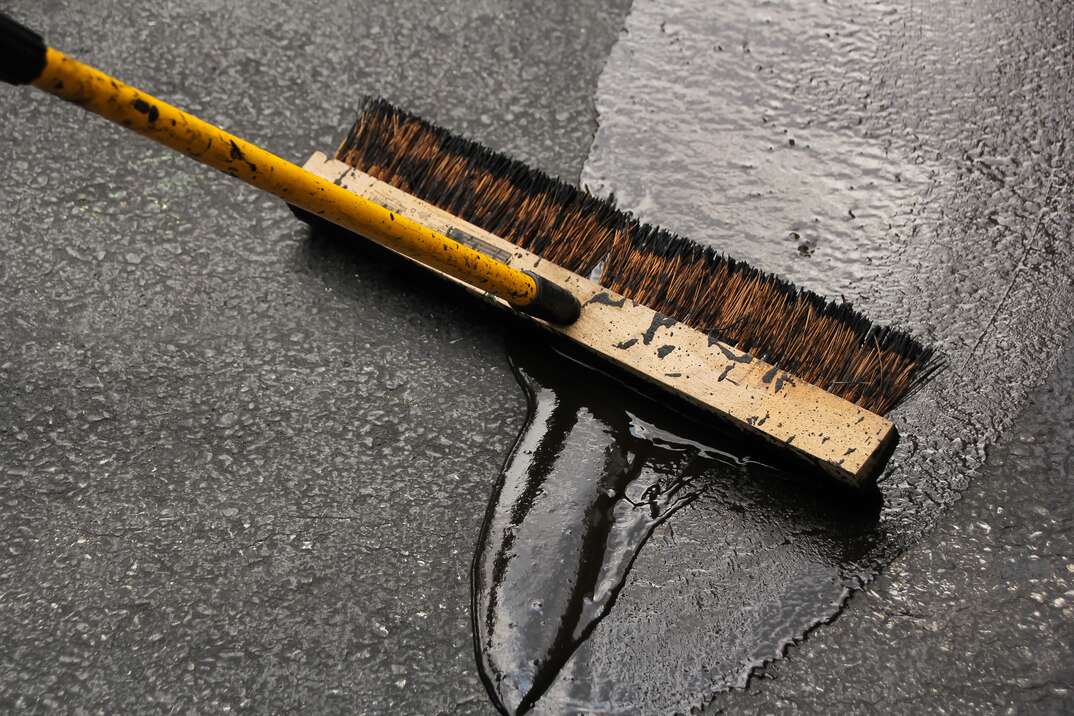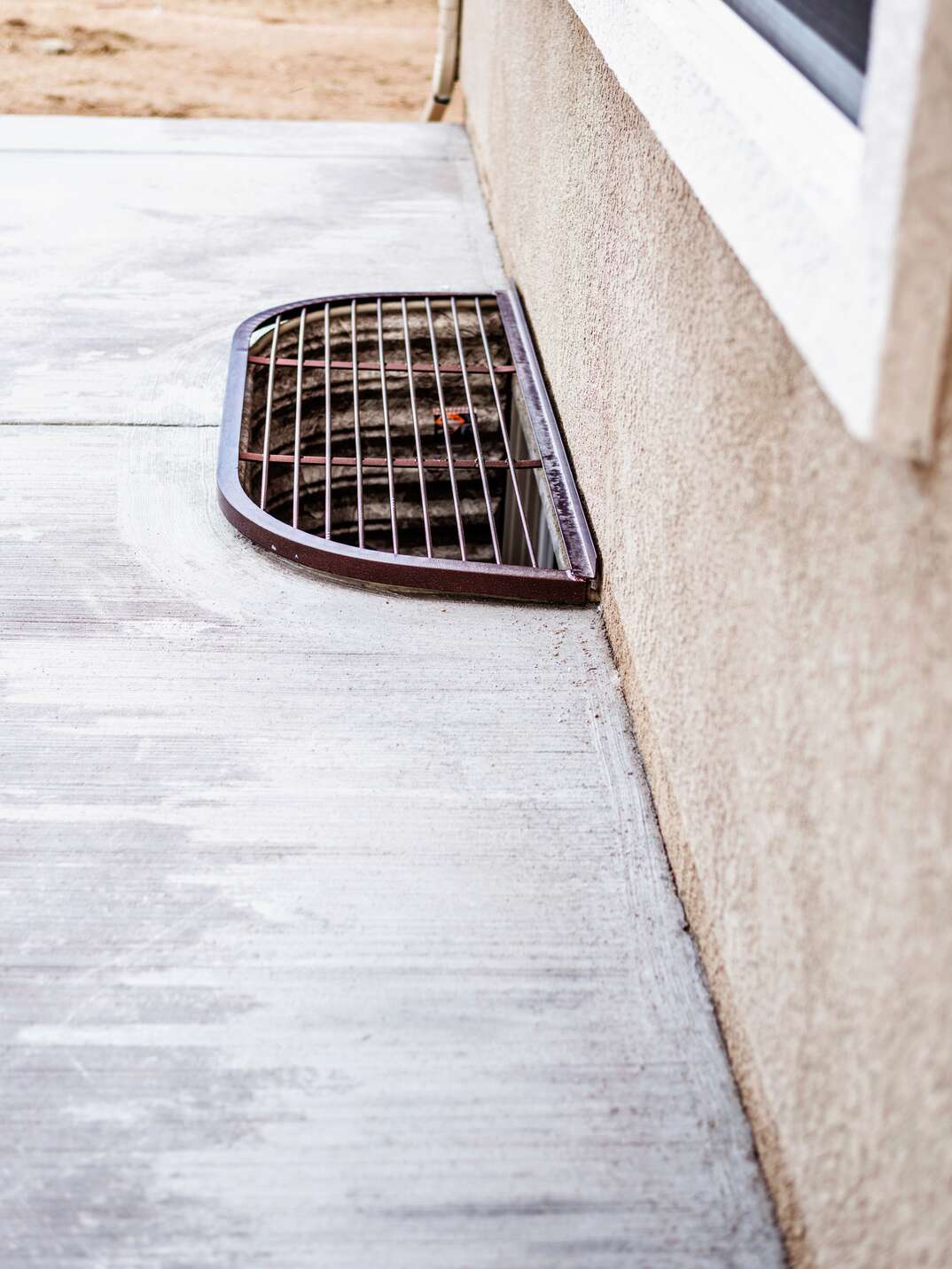How Much Does Driveway Sealing Cost?

Driveway Sealing Costs at a Glance
- Price per square foot: 15-30 cents
- Labor price per square foot: 61 cents to $1.75
- Sealant coverage: Approximately 80 square feet per gallon
Sealcoating asphalt driveways is the process of applying a liquid product over the surface that fills small pores and protects against the rays of the sun, automotive fluids and water seepage. Asphalt or blacktop driveways regularly require this kind of sealing every few years.
This May Also Interest You: Garage Door Replacement Costs
The cost of resealing your blacktop driveway is something you should include in your budget for maintenance expenses. For estimation purposes, we found the national average for driveway resealing ranges from 15-30 cents per square foot.
Why Should I Seal My Driveway?
Blacktop, or asphalt, is a common roadway and driveway material. Like concrete, asphalt is a porous material subject to stains, and combined use and exposure will break it down over time. This type of pavement also expands and contracts with temperature changes, and fluids work their way down through the pores — all increasing the likelihood of cracks, potholes and other imperfections.
Over the life of your blacktop driveway, the pavement will be exposed to:
- Vehicle fluids
- Rain
- Fertilizers
- Deicers
- UV rays
- Paint
- Rust
- All sorts of other stuff
Is Sealing Your Driveway Worth It?
Well, that depends ... how much are you looking forward to having to replace your driveway entirely? Like most maintenance priorities, homeowners can consider it a proposition of paying some now versus pay more later. Neglected driveways reach a point where they cannot be repaired and ultimately need replacement. Homeowners can extend the life and looks of their asphalt as well as save money on replacement by regularly seal coating their driveway with a quality sealer.
What Type Of Driveway Sealer Should I Use?
Driveway sealers come in a variety of mixtures and each has its benefits. Do some research to determine which type of seal coating is going to work best for your needs. You’ll find a big difference in the handling and prep work needed and prep needed between different types of sealers. Premixed or varieties that call for minimal mixing can save you time and hassle.
The most common seal coating for blacktop driveways is standard asphalt sealer, which is composed of asphalt cement. Other types include:
- Acrylic
- Blended
- Coal tar
- Epoxy
- Oil-based
The more synthetic the seal coating, typically the more expensive it’ll be, but you generally can expect better performance from higher grades. Oil-based sealers will take longer to cure compared with synthetic versions.
How Much Does a 5-Gallon Bucket of Driveway Sealer Cover?
Each gallon of sealer will cover roughly 80 square feet of pavement. Pay attention to the manufacturer’s instructions and recommendations for the sealer you choose, as some brands recommend multiple layers.
Should I Seal My Driveway Myself or Hire a Contractor?
The average cost of labor to seal coat a driveway ranges from roughly 61 cents to $1.75 per square foot plus the cost of materials. Of course, you should ask for bids from multiple companies to be sure you’re not overpaying as well as to make an educated cost comparison to doing it yourself.
This is a project that DIYers can handle given the proper tools and insight, if you want to save on labor. To do this effectively yourself, expect some heavy lifting and choose a day with suitable weather (around 60 degrees and dry), plus you’ll need these tools and materials:
- Asphalt squeegees
- Paintbrushes
- Seal coat
- Asphalt crack filler
- Rubber boots
- Gloves
- Disposable coveralls
- Goggles or eyeglasses
- Brooms or a leaf blower
Preparation activities are going to include cleaning the driveway, removing debris and vegetation, masking off areas of the home and other places you don’t want to get splattered, and also mixing or preparing the seal coat liquid. For this last task, each brand will have specific instructions that may differ based on how the coating will be applied.
Safety Tips for Seal Coating a Driveway
All asphalt seal coatings contain chemicals that are known irritants. Safely handling the seal coat and keeping it off your skin, out of your eyes and anywhere else you don’t want it is of vital importance. Wear protective clothing and eye protection, and ensure your extremities are covered. There is a high probability you’ll need to trash the clothes you wear after this project is done — so you’ll want to avoid wearing your fave vintage band T-shirt.
Do I Need to Fix Cracks in My Driveway Before Resealing It?
Most homeowners will be working with an existing driveway. Part of the preparation process, in that case, includes fixing any defects before you reseal the surface. Asphalt emulsion crack fillers are available for use in caulk guns for precision work and in cans for bulk use.
While addressing these imperfections, overfill larger defects to allow some settling and compression to grade level over time. Filling cracks will require some overflow, as well, to allow for expansion and contraction with temperature changes.
DIY Vs. Contractor: Consider the Value Proposition
By the time you factor in the costs of all the materials and tools, and add up your time gathering supplies and prepping according to directions, the difference in value between DIY and professional service may be minimal. Plus, contractors may have access to commercial-grade materials that you as a consumer do not.
But it’s your driveway, so it’s your choice. Either way, now you have some facts and advice on which to base an informed decision that best suits your driveway-maintenance needs — signed, sealed and delivered.
Protect yourself from out-of-pocket expenses for emergency repairs your homeowner’s insurance doesn’t cover with a HomeServe policy today. HomeServe has over 4 million customers in the U.S. and covers costs up to the benefit amount. Call us for a free consultation and see how we take the headaches out of homeownership.

.jpg)
